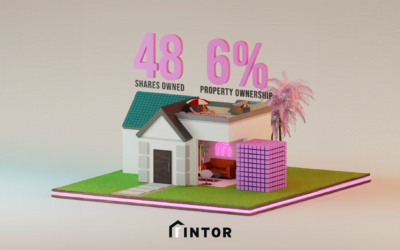Explore different financing options to purchase your first real estate investment property, including different types of loans and ways to get started with limited capital.
Real estate investing has been a popular investment category for decades. The combination of cash flow, capital appreciation, and historically stable prices attract a variety of investors.
However, real estate investing is also difficult to break into. Of course, you could purchase a property with cash, but that is unrealistic for most people.
Moreover, even the down payment for a conventional mortgage can be tricky. To avoid paying private mortgage insurance, mortgages typically require a 20% down payment, which means you need to have over $88,000 of cash to purchase the median U.S. home.
In this guide, we explore different financing options to purchase your first real estate investment property. Let’s get started.
Mortgages for Real Estate Purchases
The most traditional way to finance a real estate investment is through a mortgage. A mortgage is a loan from a bank secured by the borrower’s income and creditworthiness. For investment properties, lenders will factor in the rental income as well.
Keep in mind that a mortgage is also secured by the property itself. If the borrower does not make their payments, the bank can repossess the home and sell it to cover the outstanding balance of the mortgage
Let’s walk through a few topics related to a residential mortgage.
Down Payments
On a $300,000 home, the typical down payment required is 20% or $60,000. However, this is not necessarily a requirement.
If a buyer puts less than 20% down, they are required to purchase private mortgage insurance (PMI) which comes with an extra monthly cost. The cost of PMI depends on your credit score and your down payment.
There are programs available to put less money down. For example, the minimum down payment for a Federal Housing Administration (FHA) loan is 3.5% of the purchase price. That said, be sure to check FHA guidelines for your area as there are purchase price limits associated with these loans.
For our $300,000 home, that is only $10,500.
There are also specialty lenders who are comfortable giving loans with down payments as low as 10%, 5%, or even 3%.
However, a lower down payment is not always better. Lenders will make up this benefit to you, and risk to them, by increasing the interest rate, increasing their fees, or both.
It’s important to weigh the pros and cons for a particular situation by modeling two or three common scenarios (e.g., 10% down with PMI vs. 20% down without PMI).
Credit Score and Credit History
Your credit score and credit history are two of the biggest factors when looking to make a real estate purchase. For an investment property, lenders will look at your creditworthiness, income, and the property’s rental potential (since there will also be rental income generated).
The conventional mortgage requires good credit scores (typically above 580) and stable W-2 wages. That said, the higher your credit score, the better rates you’ll unlock.
If you do not meet these requirements, there are other financing options available but the interest rate will be higher as well.
Types of Mortgages
There are three main types of mortgages: fixed rate, adjustable rate, and balloon.
Fixed rate and adjustable rate mortgages amortize the full amount borrowed over the term of the loan. In other words, if you borrow $100,000 over 15 years, then you will repay the full debt obligation over those 15 years.
On the other hand, a balloon mortgage comes with a reduced monthly payment but requires a lump sum payment to be made to pay off the loan. The same $100,000 loan might have the monthly payments cover $80,000 and have a $20,000 lump sum payment at the end of year 15.
As the name implies, a fixed rate mortgage has the same interest rate over the duration of the loan agreement. An adjustable rate mortgage (ARM) will have its rates adjust periodically to reflect the market interest rate. As such, the monthly payment amount cannot be guaranteed.
Common ARM types are 3/1, 5/1, and 7/1. The first number is the number of years where the payments are fixed and the second number refers to how many times a year the interest rate adjusts.
A 3/1 ARM means that the payments are fixed for 3 years then adjusts once per year for the remainder of the loan. A 5/1 ARM has fixed payments for 5 years then adjusts once a year, and so on.
There are also interest-only fixed and adjustable-rate mortgages (IO Fixed | ARM). These mortgages have an initial period where only interest payments are due, as opposed to the traditional interest and principal.
Private Investors for Real Estate Purchases
Banks offer real estate loans at reasonable interest rates, but come with a myriad of rules and regulations. For investors that don’t meet those requirements, there are plenty of private investors (high net worth individuals and businesses) that are available.
Alternative Debt Financing
As mentioned above, one reason why mortgages have low interest rates is because they are secured by both the borrower’s credit and the asset’s value. If you have low income or poor credit, you can look to loans secured by the asset itself.
Hard money loans are loans secured by real property. These loans come with a significantly higher interest rate but can be secured fast, which are great for certain investors.
In general, hard money loans are considered for short-term financing. If you have a project that will last for years, you should not look at hard money loans.
Alternative Equity Financing
In addition to the debt financing available above, there is also equity financing available for real estate projects. Finding a co-investor is a great way to get started in real estate and build a track record.
For example, if a property costs $200,000 and you do not qualify by yourself, you should look for a business partner who can split the down payment and share the risk with you.
Summary
There are many ways to finance a real estate purchase. You could get a conventional fixed-rate mortgage, an adjustable-rate mortgage, or a balloon mortgage. Furthermore, you could look for professional investors or partners to join the deal.
If you split a deal with two other partners, your initial capital contribution will be much lower than trying to finance an investment by yourself. Furthermore, there are also hard money loans available if you want to enter into short term projects.
Each type of financing has its pros and cons, so carefully consider them when evaluating your options.
These common and high barriers for many people to get started in real estate investing continues to demonstrate the value of fractionalized investing through apps like Fintor.



